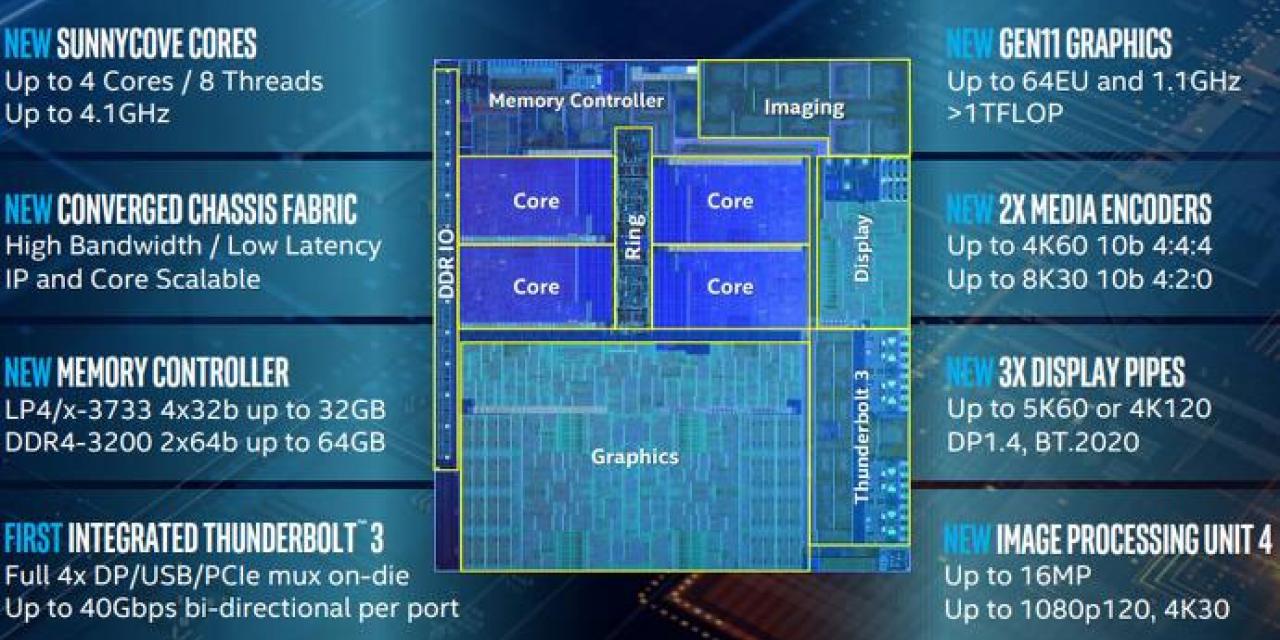
Intel didn't have any new desktop hardware to show off at this year's Computex, but it did have an exciting new architecture and chip line all the same; albeit in a rather limited form. Ice Lake is Intel's first volume-shipped 10nm chip. It's based on a new, Sunny Cove architecture and brings with it a number of impressive performance enhancements — it's just a shame that it's limited to laptops for now.
Ice Lake is technically the second-generation of 10nm parts that Intel has worked on. Cannon Lake was its very first generation of 10nm, but it only released in a single laptop and didn't do so to much fan fare. It was originally designed as a full stack desktop and laptop chip line, but that never materialized due to yield issues. Intel is reportedly still struggling in that regard and won't have true volume Ice Lake chips until the end of 2019 and even then only in the laptop space. We could be waiting until 2021 before Intel releases true, 10nm desktop chips.
In the meantime though, Ice Lake is rather impressive. It has up to four cores and eight threads, with a maximum frequency of 4.1Ghz. It has a new chassis fabric that delivers extra bandwidth and reduced memory latency, better memory support, integrated Thunderbolt 3, Wi-Fi 6, and improved graphics with Intel 11th generation cores that deliver up to a teraflop of performance. That's roughly comparable to a release-day Xbox One.
But the IPC uplift is the big news as this makes Ice Lake hotly competitive with AMD's new Ryzen 3000 APUs based on the Zen+ architecture. It also makes it a fantastic entry level gaming solution, with Esports games like League of Legends, CS:GO, DotA 2, and PubG all playing fantastically on the Intel chip alone, no GPU required.
Ice Lake is already rolling out in Dell laptops, but expect it to show up in other devices in the near future.








